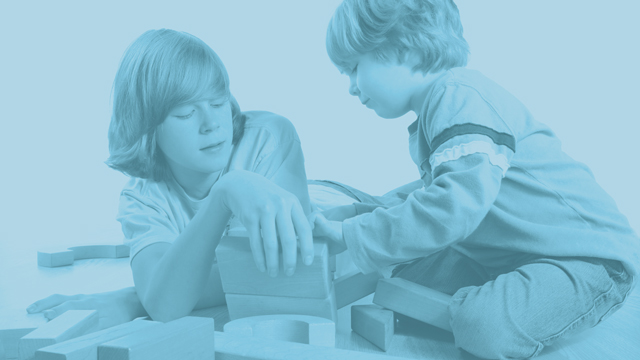 I have always counted on my older kids to take care of my toddler, and because I’m working from home now, that has become even more important. My 13-year-old son is saying he shouldn’t have to take care of his little sister because he’s a boy. I know this is nonsense. I’d like to hear from an expert on this one.
I have always counted on my older kids to take care of my toddler, and because I’m working from home now, that has become even more important. My 13-year-old son is saying he shouldn’t have to take care of his little sister because he’s a boy. I know this is nonsense. I’d like to hear from an expert on this one.

Do you remember being thirteen? Sometimes, we adults need to reach back and remember the daunting and disorienting challenges of those years because understanding is the first step of relationship-building, especially in raising teens. To your son, this situation is certainly not nonsense. It is challenging the emerging identity he is crafting for himself, and he can’t imagine how babysitting his younger sister fits in.
Renowned psychologist Erik Erikson believed that the fundamental task of adolescence is to create a sense of identity. Between eleven and thirteen, many boys are moving away from their natural healthy attachment to mom to identify more with dad or a male role model in their lives. Pressure to do so resides mainly with other boys. As Michael Thompson says in the book, It’s a Boy, “You don’t have to lose him at this age, but you are sharing him now with his peer group.” Despite the advances our society has made to reduce gender stereotyping, your son’s peer group can be unforgiving and even cruel to a boy who stays close to his mom or perceived female roles – such as nurturing young children – even though there are a myriad of excellent male role models who he probably knows and respects.
So now that we understand why he resists the job, let’s look at how to help him accept this responsibility, contribute to the family, and grow from it. Role models are a good place to start. Begin to point out the male coaches, teachers, nurses, and doctors in his life. Talk about what traits he sees in the ones who are the most respected and honored for their work. He will discover that they are not only highly skilled, but empathic and caring. And they love their jobs. It is rewarding internally to nurture, teach, and connect with children. As your son grows into it, it can do the same for him, developing an empathy not only for his little sister as he comes alongside her in the ups and downs of her world, but empathy for you, in the relentless job of parenting.
And here’s another idea: In these tough times, boys and girls are depending on screens a lot. They need to stay connected, but screens are also providing regular hits of dopamine (the pleasure hormone). If not checked, screens are addictive. If your son can learn to enjoy playing with his little sister in real time, sharing his own interests with her such as art or music or sports, he will unknowingly find a natural and healthy alternative to digital bingeing and social media use.
How do you avoid a power struggle though? An important aspect of raising a teen is giving him a voice. While you have the outcome crystal clear in your mind, let your son have a voice in how to get there. Can you schedule the babysitting duty to some extent and respect the alone-time he needs? Post it on the fridge, with the understanding that there will be unexpected requests for coverage.
These ideas should help your son begin to answer the question, Who am I? to include the qualities of respect, compassion, and empathy he will need for life – which might involve parenting and a family of his own someday.




